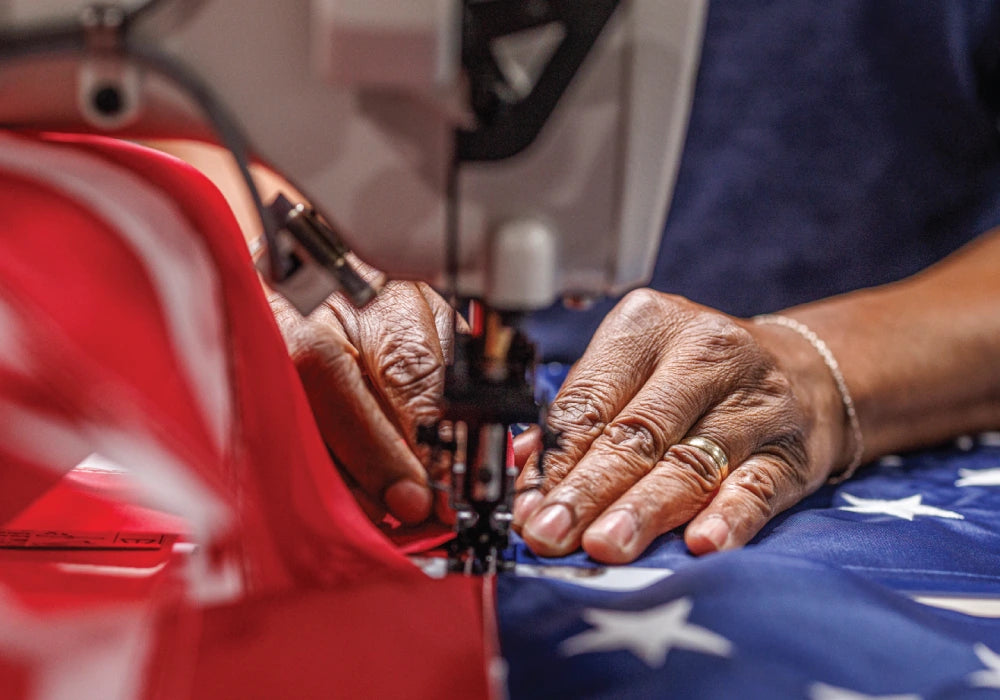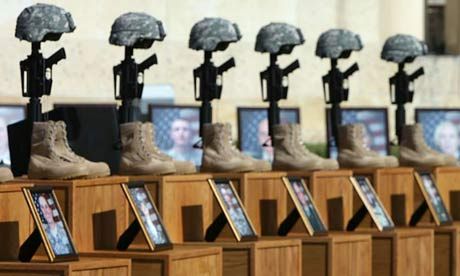November 5

1940
Franklin Delano Roosevelt was re-elected for an unprecedented third term as president of the United States. Roosevelt’s decision to break the precedent set by George Washington was made in July 1940, as the United States neared its entry into World War II. The third-term decision dominated his election campaign against the Republican contender, Wendell Wilkie. In the end, Roosevelt won the election by a wide margin, and he was able to win a fourth election in 1944. The fourth term of his presidency ended with his death on April 12, 1945.

1994
George Foreman, age 45, became boxing’s oldest heavyweight champion when he defeated 26-year-old Michael Moorer in the 10th round of their WBA fight in Las Vegas. More than 12,000 spectators at the MGM Grand Hotel watched Foreman dethrone Moorer, who went into the fight with a 35-0 record. Foreman dedicated his upset win to “all my buddies in the nursing home and all the guys in jail.” Foreman returned to the ring at age 38 and staged a successful comeback. When he won his second heavyweight title in his 1994 fight against Moorer, becoming the WBA and IBF champ, Foreman was wearing the same red trunks he’d had on the night he lost to Ali. Foreman’s last fight was in 1997 and he retired with a lifetime record of 76-5.

2009
13 people were killed and more than 30 others were wounded, nearly all of them unarmed soldiers, when a U.S. Army officer went on a shooting rampage at Fort Hood in central Texas. The deadly assault, carried out by Major Nidal Malik Hasan, an Army psychiatrist, was the worst mass shooting at a U.S. military installation. Fort Hood is the largest active-duty U.S. military post. At the time of the shootings, more than 50,000 military personnel lived and worked there, along with thousands more family members and civilian personnel. The massacre lasted approximately 10 minutes before Hasan was shot by civilian police and taken into custody. On August 23, 2013, a jury found Hasan guilty of 45 counts of premeditated murder and attempted premeditated murder, and he later was sentenced to death for his crimes.
November 6

1860
Abraham Lincoln was elected the 16th president of the United States over a deeply divided Democratic Party, becoming the first Republican to win the presidency. By the time of Lincoln’s inauguration on March 4, 1861, seven states had seceded, and the Confederate States of America had been formally established. The American Civil War soon began and eventually ended in 1865 when General Robert E. Lee surrenders. For preserving the Union and bringing an end to slavery, along with his unique character and powerful oratory, Lincoln is hailed as one of the greatest American presidents.

1869
Rutgers beat Princeton, 6-4, in the very first college football game. The game was played with a soccer ball before roughly 100 fans in New Brunswick, New Jersey and resembled rugby instead of today's football. Each school had 25 players. Every score counted as a "game"—the contest was supposed to end when the teams combined for 10 "games." Rutgers finished with six games to Princeton's four. Even off of the playing fields, the rivalry between the New Jersey schools, located 20 miles apart, was heated. At the time, Princeton was known as the College of New Jersey. In 2019, Rutgers theater students reenacted the first game to commemorate college football's sesquicentennial.

1906
President Theodore “Teddy” Roosevelt embarked on a 17-day trip to Panama and Puerto Rico, becoming the first president to make an official diplomatic tour outside of the continental United States. Roosevelt visited Panama to check on the progress of the Panama Canal, the construction of which had suffered many setbacks, including worker accidents and disease outbreaks. His time in Puerto Rico was to recommend that Puerto Ricans become U.S. citizens. He stopped short of suggesting Puerto Rico become another U.S. state, however, and vowed to allow the island a certain amount of autonomy.
November 7

1916
Montana suffragist Jeannette Rankin was elected to the U.S. House of Representatives. She was the first woman in the history of the nation to win a seat in the federal Congress. A dedicated pacifist, Rankin’s first vote as a U.S. congresswoman was against U.S. entry into WW1. Many supported her courageous stand, though others claimed her vote showed that women were incapable of shouldering the difficult burdens of national leadership—despite the fact that 55 men had also voted against the war. Rankin’s vote against WWI contributed to her defeat in her 1918 reelection bid. Ironically, she again won a seat in the U.S. House of Representatives in 1940, just as the nation was about to enter WW2. Rankin became the only person in the history of Congress to vote against U.S. entry into both world wars. This time, though, the principled pacifist from Montana cast the sole dissenting vote.



1989
Two very important firsts for African Americans in politics occurred on the same day. In New York, former Manhattan borough president David Dinkins, a Democrat, was elected New York City’s first African American mayor, while in Virginia, Lieutenant Governor Douglas Wilder, also a Democrat, became the first elected African American state governor in American history.

2000
A pivotal moment in U.S. election history occurred when the presidential election culminated in a statistical tie between Democrat Al Gore and Republican George Bush. The results in Florida were unclear by the end of election night and led to a recount and a Supreme Court case, Bush v. Gore, which ended the dispute in favor of Bush a month later. The election exposed several flaws and controversial elements of the American electoral process and was the fourth of five U.S. presidential elections in which the winner lost the popular vote.
November 8

1960
John F. Kennedy, 43, became the youngest man ever to be elected president of the United States, narrowly beating Republican Vice President Richard Nixon. He was also the first Catholic to become president. The campaign was hard fought and bitter. For the first time, presidential candidates engaged in televised debates. Many observers believed that Kennedy’s poised and charming performance during the four debates made the difference in the final vote.

1965
For action this day in the Iron Triangle northwest of Saigon, Specialist Five Lawrence Joel, a medic with the 1st Battalion, 503rd Airborne Infantry, 173rd Airborne Brigade was awarded the Medal of Honor, becoming the first living African American since the Spanish-American War to receive the nation’s highest award for valor. When his unit was outnumbered in an attack by an enemy force, Specialist Joel, who suffered a severe leg wound in the early stages of the battle, continued to administer aid to his wounded comrades. Wounded a second time—with a bullet lodged deep in his lungs—Joel continued to treat the wounded, completely disregarding the battle raging around him and his own safety.

1973
Maurice Ferré was elected Mayor of Miami, Florida. In addition to becoming the first Puerto Rican to lead a major city in the mainland United States and the first Hispanic Mayor of Miami, Ferré is credited for transforming Miami from a tourist town into an international city. He would hold the position until 1985, serving six two-year terms. During his time as mayor, he expanded the city's port, lured domestic and foreign banks to a newly-christened financial center, and welcomed the immigrants who poured in from Cuba. Upon his death in September of 2019, both allies and bitter political rivals acknowledged his contributions to the city. His obituary in the Herald referred to him as "the father of modern-day Miami."
November 9

1965
The biggest power failure in U.S. history occurred as all of New York state, portions of seven neighboring states, and parts of eastern Canada are plunged into darkness. The Great Northeast Blackout began at the height of rush hour, delaying millions of commuters, trapping 800,000 people in New York’s subways, and stranding thousands more in office buildings, elevators, and trains. Ten thousand National Guardsmen and 5,000 off-duty policemen were called into service. The blackout was caused by the tripping of a 230-kilovolt transmission line near Ontario, Canada, at 5:16 p.m. All together, 30 million people in eight U.S. states and the Canadian provinces of Ontario and Quebec were affected by the blackout. During the night, power was gradually restored to the blacked-out areas, and by morning power had been restored throughout the Northeast.


1984
Wes Craven's horror film "A Nightmare on Elm Street" premiered in the US. The plot centers around four teenagers living on one street in the fictitious town of Springwood, Ohio, who are invaded and killed in their dreams, and thus killed in reality, by a burnt killer with a bladed leather glove named Freddy Krueger. The film was met with rave critical reviews and is considered one of the greatest horror films of all time.

1996
Evander Holyfield upset Mike Tyson in 11th-round knockout in Las Vegas to regain WBA heavyweight boxing title. He became the second boxer, after Muhammad Ali, to win a heavyweight title 3 times. The two boxers would have a rematch the following year that would achieve notoriety as one of the most bizarre fights in boxing history, after Tyson bit off part of Holyfield's ear. Tyson was disqualified from the match and lost his boxing license, though it was later reinstated.
November 10

1775
During the American Revolution, the Continental Congress passed a resolution stating that “two Battalions of Marines be raised” for service as landing forces for the recently formed Continental Navy. The resolution, drafted by future U.S. president John Adams and adopted in Philadelphia, created the Continental Marines and is now observed as the birth date of the United States Marine Corps. After American independence was achieved in 1783, the Continental Navy was demobilized and its Marines disbanded. Increasing conflict at sea with Revolutionary France led the U.S. Congress to establish formally the U.S. Navy in May 1798. Two months later, on July 11, President John Adams signed the bill establishing the U.S. Marine Corps as a permanent military force under the jurisdiction of the Department of Navy. In all, Marines have executed more than 300 landings on foreign shores.


1969
“Sesame Street,” a pioneering TV show that would teach generations of young children the alphabet and how to count, makes its broadcast debut. “Sesame Street,” with its memorable theme song (“Can you tell me how to get/How to get to Sesame Street”), went on to become the most widely viewed children’s program in the world. It has aired in more than 120 countries. The show was the brainchild of Joan Ganz Cooney, a former documentary producer for public television. Cooney’s goal was to create programming for preschoolers that was both entertaining and educational. She also wanted to use TV as a way to help underprivileged 3- to 5- year-olds prepare for kindergarten. “Sesame Street” was set in a fictional New York neighborhood and included ethnically diverse characters and positive social messages.

1984
The University of Maryland’s backup quarterback Frank Reich threw six touchdown passes against the University of Miami in the second half of the game, completing an improbable comeback. The Terrapins, who had been losing 31-0 at the half, ended up winning the game 42-40. “In the first half, everything that could possibly go wrong, went wrong,” one of Reich’s teammates said. “In the second half, everything that could possibly go right, went right.” To many fans and journalists, the 1984 game is college football’s greatest and most exciting comeback. Reich was selected in the third round of the 1985 NFL draft where he played second string quarterback for most of his career. He is now the head coach of the Indianapolis Colts.
November 11


1918
Armistice Day: World War I Ends
At the 11th hour on the 11th day of the 11th month of 1918, the Great War ends. At 5 a.m. that morning, Germany, bereft of manpower and supplies and faced with imminent invasion, signed an armistice agreement with the Allies in a railroad car outside Compiégne, France. The First World War left nine million soldiers dead and 21 million wounded, with Germany, Russia, Austria-Hungary, France and Great Britain each losing nearly a million or more lives. In addition, at least five million civilians died from disease, starvation, or exposure. WWI was known as the “war to end all wars” because of the great slaughter and destruction it caused. Unfortunately, the peace treaty that officially ended the conflict—the Treaty of Versailles of 1919—forced punitive terms on Germany that destabilized Europe and laid the groundwork for World War II.

1977
The Atari 2600, originally known as the Atari Video Computer System (Atari VCS), was released in North America, revolutionizing the video game industry. It sold for $199 and included a console, two joy sticks and a game cartridge. It was manufactured until 1982 which, by this time, the market was saturated with game consoles. This coupled with the rise of the home computer led to the 1983 video game crash.


1978
A stuntman on the Georgia set of “The Dukes of Hazzard” launched the show’s iconic automobile, a 1969 Dodge Charger named the General Lee, off a makeshift dirt ramp and over a police car. That jump, 16 feet high and 82 feet long (its landing totaled the car), made TV history. Although more than 300 different General Lees appeared in the series, which ran on CBS from 1979 until 1985, this first one was the only one to play a part in every episode. That jump over the squad car ran every week at the end of the show’s opening credits. While “The Dukes of Hazzard”was on the air, the General Lee got about 35,000 fan letters each month. Indianapolis DJ Travis Bell restored the original General Lee in 2006.






